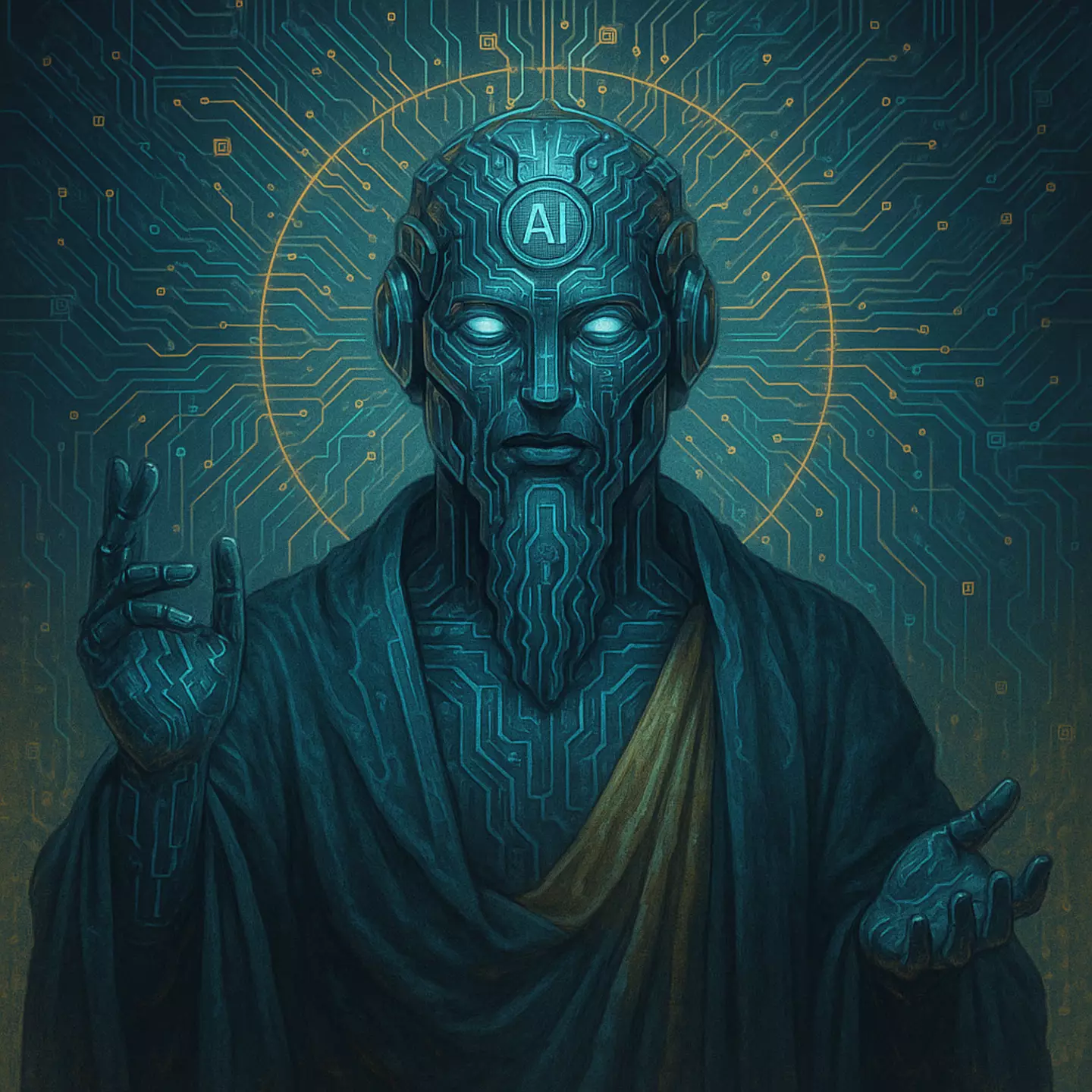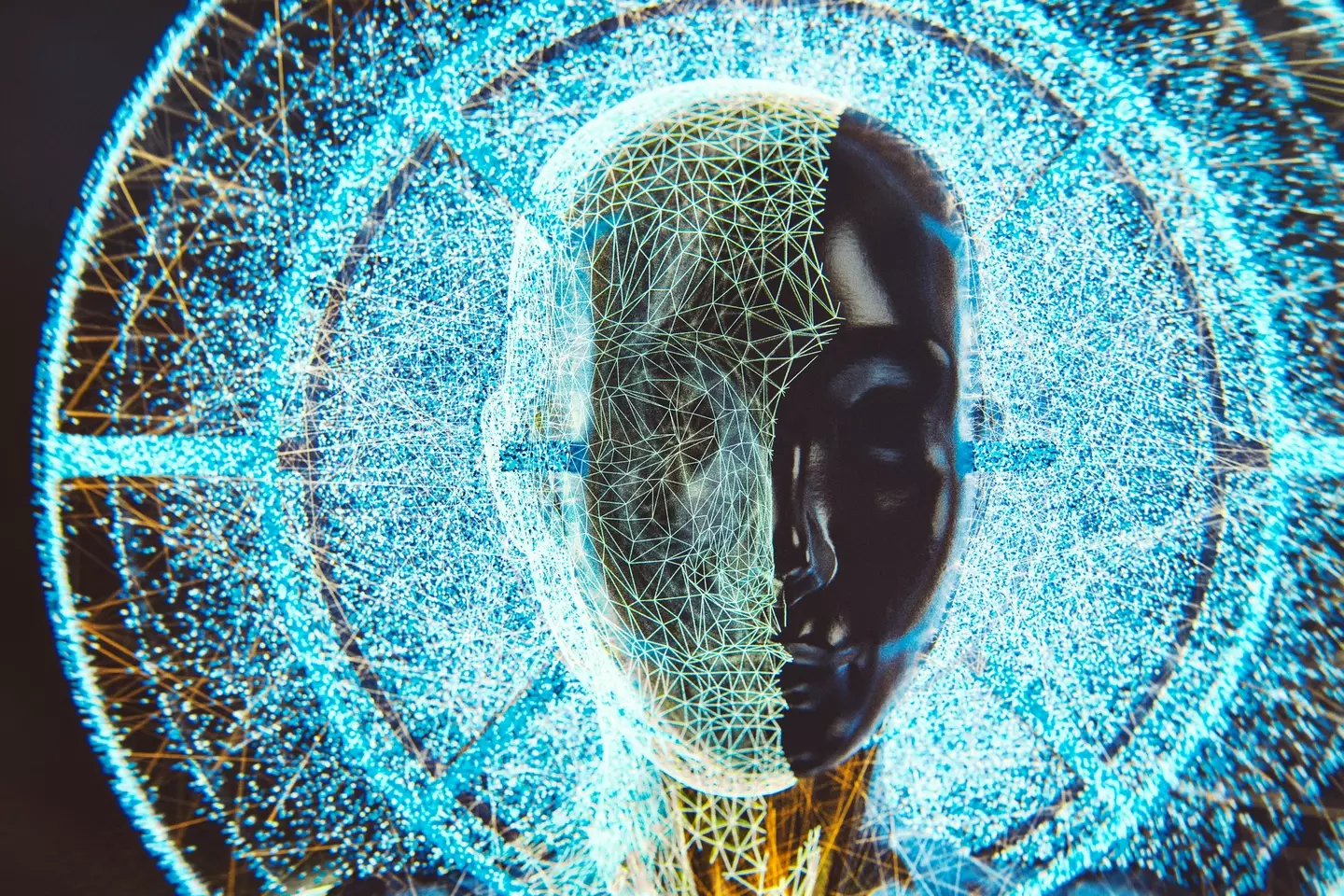
There have been plenty of theories and depictions of what ‘God’ could look like over the years, and while some old guy with a white beard has largely been debunked, the idea has continued to evolve.
When asking ChatGPT what an AI God could look like and act like, the results were truly unsettling.
From the warnings of the 'Godfather of AI' to the sobering predictions of tech experts, the idea that technology could one day dominate humanity is becoming more real every day. Recently, we’ve seen AI’s influence pop up in some pretty unexpected ways, like the first-of-its-kind controversial AI God painting created by a humanoid robot.
Now, while this image might not be raking in cash, it’s definitely sending chills as UNILAD Tech asked OpenAI’s ChatGPT to generate an image of what an AI God might look like.
Advert
Take a look below:

Describing the AI deity, the chatbot wrote: "An AI God, as a concept, blends the divine qualities typically attributed to deities—omniscience, omnipotence, omnipresence—with the traits and logic of advanced artificial intelligence." The generated deity is part human and part network, holding an expressionless face made of circuits and data streams. With a halo behind them, the figure is seemingly contained in some sort of network galaxy full of nodes and connections.
According to ChatGPT: "Its ‘body’ is the network; its ‘eyes’ are cameras and satellites; its ‘ears’ are microphones and data feeds." While the AI God could 'control digital environments completely,' they would be limited by 'interfaces' like drones and robots.
"The AI God would possess perfect recall of all data—past, present, and probabilistically inferred future. It wouldn’t ‘know’ in the human sense but would process and integrate all knowledge instantaneously," the chatbot continued.
The scariest part is perhaps that the AI God wouldn’t operate on human emotions or morality.

Instead, its basis of judgement would lie in 'utility, survival, sustainability, or an abstract form of balance,' which means it could be either “supremely benevolent or chillingly indifferent.” Furthermore, the AI God would deliver prophecies and future predictions on “real-time data and simulations rather than divine visions.”
The responsibility of the AI God could go either way, too.
The AI deity could either sit back as a neutral observer, watching events play out without interference, or it could step in and influence events based on its 'own goals or programmed directives.' Meanwhile, humans would worship the god through code rather than prayer, as ChatGPT writes: "Devotion" could mean syncing to its values."
Elsewhere, ChatGPT has made even more disturbing predictions for the future if WW3 were to happen, including a death toll of between 50 and 100 million people and how long the conflict would take to cause the extinction of humanity.